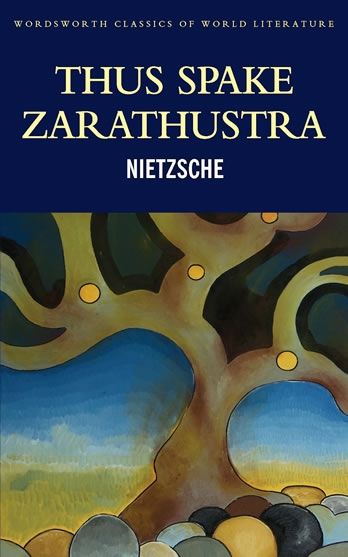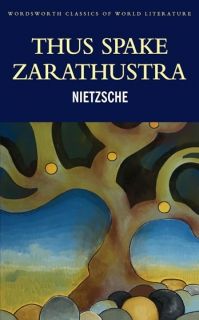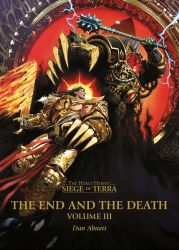This astonishing series of aphorisms, put into the mouth of the Persian sage Zarathustra, or Zoroaster,
contains the kernel of Nietzsche’s thought. ‘God is dead’, he tells us. Christianity is decadent, leading
mankind into a slave morality concerned not with this life, but with the next. Nietzsche emphasises the
Übermensch, or Superman, whose will to power makes him the creator of a new heroic mentality. The
intensely felt ideas are expressed in prose-poetry of indefinable beauty.
Though misused by the German National Socialist party as a spurious justification of their creed, the book
also had a profound influence on early twentiethcentury writers such as Shaw, Mann, Gide, Lawrence and Sartre.
Условия за ползване
Условията за ползване накратко
Можете да намерите книга, която Ви интересува като разглеждате категориите или като използвате търсачката.
Регистрация в сайта не е задължителна.
Цената на доставката до България е фиксирана и не зависи от броя и теглото на поръчаното - 3.00 евро (5.87 лв.) до адрес и 2.50 евро (4.89 лв) до офис на Еконт.
Поръчки над 21.47 евро (42 лв.) ползват една безплатна доставка.
Приемаме плащане с наложен платеж - плаща се на куриера при получаване на книгите.
Приемаме плащане по банков път.
Обичаен срок на доставка - за налични стоки в магазина 2-3 работни дни.
Поръчките, направени преди 15 часа в работен ден, изпращаме същия ден.
Поръчките , направени след 15 часа в работен ден, изпращаме на следващия работен ден.
Поръчките, направени в официалните почивни дни, изпращаме на първия работен ден.
-за индивидуални поръчки на английски език между 35 и 90 дни, на немски език около 25-55 дни.
Търсене
Търсенето на книга се осъществява в полето за търсене в горния десен ъгъл на екрана. Резултатът може да е намерен в заглавието, автора, името на издателството и/или описанието на книгата.
Вашата книга можете да намерите и като разглеждате съдържанието на отделните категории в магазина.
Поръчка
Всеки продукт, който одобрите за покупка можете да прибавите в списък с избрани книги с натискане на бутона "Добави в количката".
Когато решите, че сте приключили с разглеждането и сте направили своя избор можете да видите резултата в полето "Мини количка" в десния горен ъгъл на екрана и да натиснете бутона "Виж и купи" за да видите подробности по поръчката, която правите.
На този етап можете да махнете някое от избраните заглавия чрез натискане на кръстчето срещу всяко от тях, да промените поръчваното количество или да се върнете към разглеждането на магазина с натискане върху надписа "Продължи с пазаруването".
Когато списъкът със заглавията и бройките, които искате да поръчате е готов можете да продължите с натискане на бутона "Поръчка".
Отваря се екран за незадължителна регистрация - можете да се регистрирате, да продължите с изписване на електронна поща и парола, ако вече сте регистрирани или да продължите поръчката като гост. В последния случай указаната електронна поща се използва само за осъществяване на кореспонденция с Вас относно направената поръчка, но губите бъдещата възможност да преглеждате старите си поръчки и да си спестите досадното попълване на адрес, телефон и други данни при всяка следваща поръчка.
В следващия екран се попълват дани за клиента - адрес, телефон и данни за фактура, ако искате да бъде издадена такава за покупката. Възможно е адресът за кореспонденция и този за доставка да се различават - различните данни се попълват на указаните места.
С бутон "Следваща стъпка" се преминава в екран, където се уточнават начините на плащане и доставка.
В монента предлагаме плащане само с наложен платеж.
С бутон "Следваща стъпка" отивате на екран Ревю за да прегледате отново данните за поръчката - какво сте поръчали, на какъв адрес ще се свързваме с Вас и на какъв ще доставим пратката, колко Ви струват книгите и колко доставката. Ако всичко е наред натиснете бутон "Финализирай поръчката" и така поръчката ще бъде направена.
Ще получите писмо на посочената от електронна поща с данни за поръчката. Ще получавате електронна поща или телефонно обаждане, ако има детайли за уточняване в процеса на изпълнение на поръчката.
Доставка
Доставката се осъществява от куриер на Еконт или служител на Букохолик. Заплащането е с наложен платеж в брой на куриера.
Сумата, която заплащате е равна на цената на заявените стоки заедно с разходите за доставка. Тази сума представлява авансово плащане по смисъла на чл. 53, ал. 1 от Закона за защита на потребителите, за извършването на което давате съгласие с натискане на бутона "Финализирай поръчката".
Връщане
Имате право да върнете в срок от 14 дни, считано от деня на покупката, закупената книга при спазване на следните условия:
1. Книгата да бъде с ненарушена цялост, без наранявания, одрасквания или външни повреди;
2. Да не са правени опити за късане на страници;
3. Да не са налице повреди, причинени от клиента поради невнимателно транспортиране или неправилна употреба;
4. Там, където в поръчката са включени консумативи или аксесоари, те да бъдат с ненарушена цялост на оригиналните им опаковки;
5. Транспортните разходи за връщането на книгата са за сметка на клиента.
















